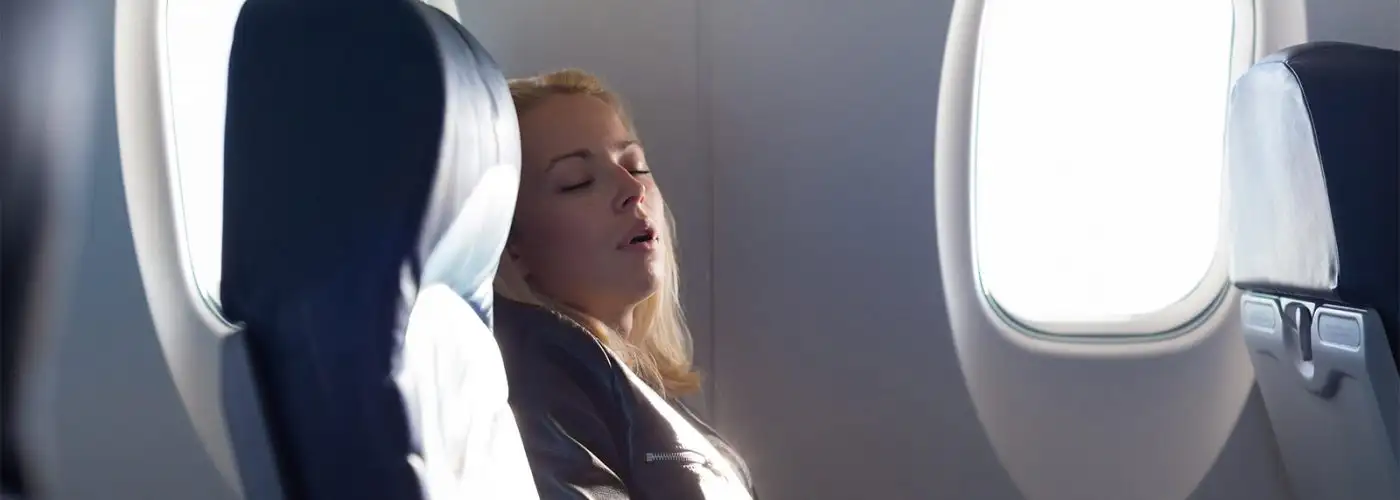When boarding a plane, you have the purest of intentions: You’re going to use this rare empty stretch of time to catch up on much-needed sleep. You’ll land at your destination bright-eyed, bushy-tailed, and ready to take on the world!
But things aren’t ever that simple, are they? In reality, you end up doing all the things that keep you from floating into dreamland. By the time you deplane, you’re tired, disheveled, and your carefully planned trip is off to a shaky start.
To prevent thwarting yet another vacation or business meeting because you’re overtired, figure out what you’re doing that’s making it difficult to sleep—and cut it out. Whether your goal is to squeeze in a catnap during a quick commuter flight or a half dozen REM cycles on a red-eye, these are all the ways you might be sabotaging your mile-high shuteye.
Image Gallery
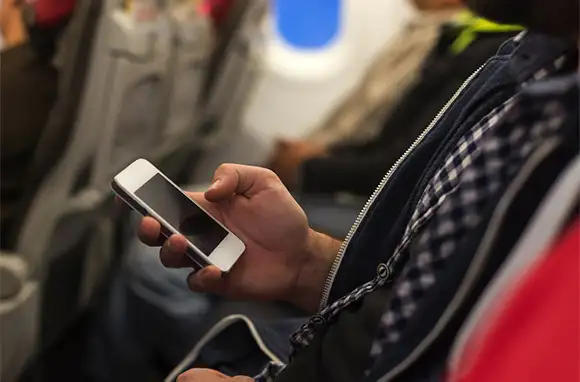
You Stare at a Screen
Who among us hasn't gone down the social-media or Web-surfing rabbit hole when we should be resting our eyes and brain? It's an easy mistake to make, but a mistake nonetheless, especially considering that smartphone, tablet, and laptop screens emit a bluish hue that messes with your body's natural sleep hormones.
"Essentially what blue light does is interfere with melatonin production in our brains," says Shelby Harris, the director of behavioral sleep medicine at New York's Montefiore Health System. "Melatonin makes us sleepy," she adds, "but needs darkness to work. And blue light reduces melatonin even more than plain old full-spectrum white light."
If you can't slow down your thoughts unaided, get into a paper book (or Kindle e-reader) instead. "Reading on an airplane is one of the best possible rituals you can do to help you fall asleep," says Ben Michaelis, a clinical psychologist and wellness author. "It helps put your mind at ease, making you feel relaxed and distanced from the hustle and bustle of traveling."

You Stare at a Screen
Who among us hasn't gone down the social-media or Web-surfing rabbit hole when we should be resting our eyes and brain? It's an easy mistake to make, but a mistake nonetheless, especially considering that smartphone, tablet, and laptop screens emit a bluish hue that messes with your body's natural sleep hormones.
"Essentially what blue light does is interfere with melatonin production in our brains," says Shelby Harris, the director of behavioral sleep medicine at New York's Montefiore Health System. "Melatonin makes us sleepy," she adds, "but needs darkness to work. And blue light reduces melatonin even more than plain old full-spectrum white light."
If you can't slow down your thoughts unaided, get into a paper book (or Kindle e-reader) instead. "Reading on an airplane is one of the best possible rituals you can do to help you fall asleep," says Ben Michaelis, a clinical psychologist and wellness author. "It helps put your mind at ease, making you feel relaxed and distanced from the hustle and bustle of traveling."
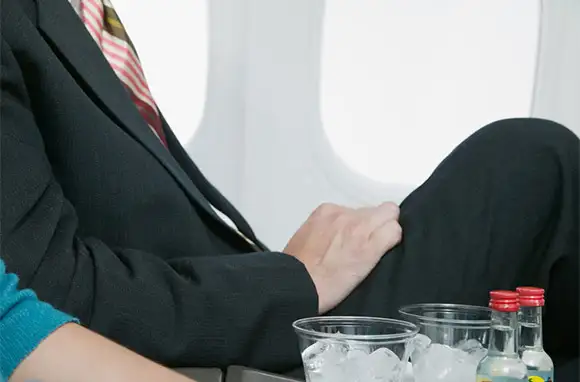
You Booze Before You Snooze
Sure, having a stewardess-stirred cocktail might make you nod off quicker (thanks, adenosine). But don't fool yourself into thinking that a nightcap will help you sleep better. In fact, dozens of studies have confirmed that any form of alcohol consumed within an hour before shuteye will dehydrate you, leave you groggy when you wake, exaggerate jetlag, and, worst of all, disrupt your overall sleeping pattern, since you get fewer REM cycles during alcohol-induced sleep. (Besides, you'll have to get up to pee.)
You know yourself best, of course, but if you're like most humans, liquor is pretty much guaranteed to mess up your circadian rhythm so that you won't sleep as long and you won't get much real rest from the sleep that you do get.
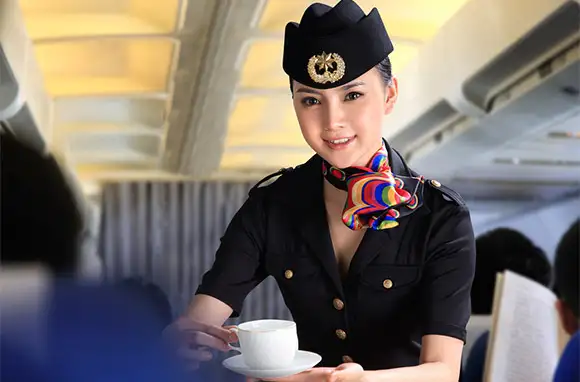
You Drink Coffee
As tempting as a steaming cup of joe might sound as the flight attendant asks for your drink order, especially if that roasted-bean smell is wafting through the cabin, resist the urge if your goal is to sleep.
The fact that coffee keeps you awake hardly needs expanding upon (a typical eight-ounce cup packs 95 milligrams of caffeine), but it's astounding how many passengers order it even if they intend to doze. Don't do that.
Instead, request room-temperature water, herbal tea, or warm milk. Beware the airlines' go-to Lipton tea, though—a bag steeped in eight ounces of water delivers 55 milligrams of caffeine. Steer clear of Coca-Cola and chocolate, too, both of which will buzz you up on caffeine and sugar.
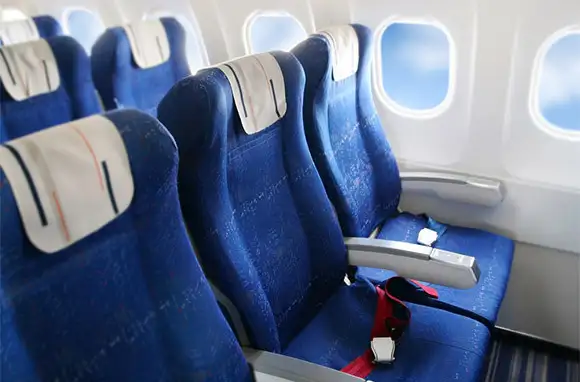
You Pick the Wrong Seat
If you've ever been stuck in the middle seat between two strangers, you know the near impossibility of achieving sleep status there. And if you're in the aisle, you'll get awoken whenever your row mates need to visit the loo or the flight attendants need to deliver service. Your most nap-optimal option, then, is always the window seat. You've got the wall to lean against, the shade to close, and the luxury of being left mostly alone.
Book your window seat when making your flight reservation. Or if you're flying an airline like Southwest whose seats are first-come, first-served, set your alarm for as soon as you can check in online. The earlier you check in, the earlier you can board the plane—and the likelier you are to nab a window seat.
As for other seat-related factors, Clint Johnston, founder of Triphackr.com, recommends using SeatGuru to suss out your most comfortable spot: "A seat away from the lavatory and the galley is a must," he says.
Wherever you end up sitting, buckle your seat belt atop your blanket or jacket so that the flight staff won't need to wake you to confirm that you're safe.
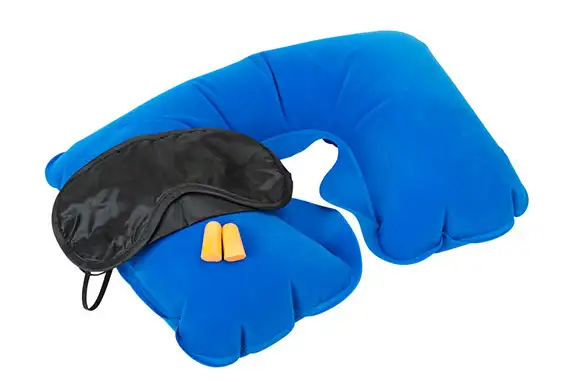
You Come Unequipped
Don't expect to be able to sleep well if you don't bring the proper equipment. "Before your flight, pack a small sleep kit and toss it into your carry-on," recommends Alanna McGinn, a certified sleep expert and the founder of the Good Night Sleep Site. "Earplugs and an eye mask can help minimize distractions and let you drift off a little easier," she adds.
The other experts I surveyed for this piece recommend bringing noise-canceling headphones, thick socks, a neck pillow (some prefer to use it under the chin instead of behind the neck), a blanket, a toothbrush and toothpaste, and your contact case and solution if needed. If you don't have an eye mask, sunglasses work in a pinch and can double as a do-not-disturb sign.
If you know they work for you, you can take sleeping pills—Ambien is popular—or better yet, a natural sleep aid like melatonin or magnesium citrate powder. "Magnesium is an anti-stress mineral and sleep aid that will help you relax and fall asleep," says Carolyn Dean, a women's health expert. "You can take travel-size packets and pour one into your water bottle and sip throughout the flight," she adds.
Related: 7 Ways to Get a Free Upgrade
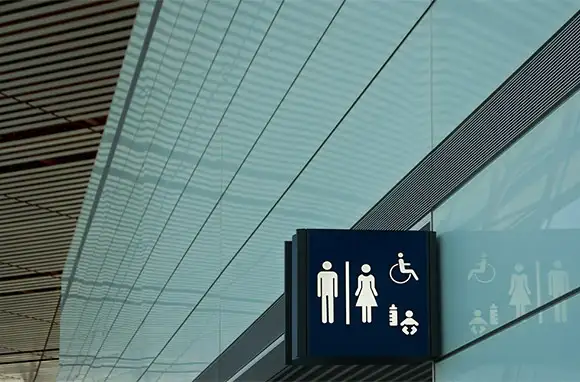
You Don't Prep at the Airport
There are certain things you can do before you get on your flight that'll make your time in your seat more restful. First of all, go to bathroom before you board. Also, eat a normal-sized meal—not too big, not too small—and get to the airport with enough time to get through security so that you don't arrive at your gate flushed and stressed.
While you still have Wi-Fi, and before you put your phone on airplane mode, download a few relaxing songs and apps. Johnston recommends Sleep Machine, which, he says, "offers soothing sounds, like the forest, the ocean, or a campfire that you might prefer over blocking noise with earplugs." Roger Brinkley, CEO of Pac2Go, a travel-accessory company, swears by the Ambi Science Pure Sleep app:"It uses a combination of binaural and isochronic entrainment," he says. (That just means it plays two kinds of tones that get your brainwaves to calm down.) "Think of it as white noise on steroids."
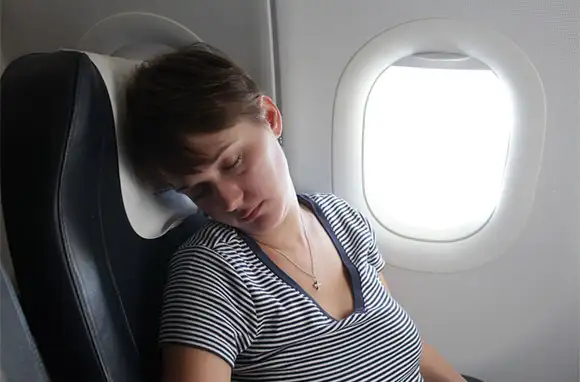
You Don't Make Yourself Comfortable
There are so many little ways you can create your own comfort aboard an aircraft, yet most people don't do it. For maximum coziness, don't forget your pillow, take off your shoes, and slip on a pair of clean socks. If you need legroom, store as much as possible in the overhead bin; or, if you prefer a leg rest, use your carry-on to prop up your feet. A few travel experts recommend placing a pillow or your backpack on your open tray table for a comfortable place to rest your head, if you don't mind leaning forward.
The day of travel, don't wear anything constricting or stiff—except for compression socks or tights, if needed. Instead, dress yourself in clothes that are as loose and comfortable as possible without it looking like you're wearing pajamas. On a long-haul flight, consider bringing actual pajamas to change into after taking off.
"Another tip is to layer up," says Heather Richardson, a luxury travel advisor. "Cabins are always too hot or too cold, so make sure you can take off layers or put them on as required." And a jacket can double as a pillow if you roll it up.
The eternal question of whether to recline your seat remains as controversial as ever—but if no one's sitting behind you, or if that person is reclined, don't hesitate to lean on back.
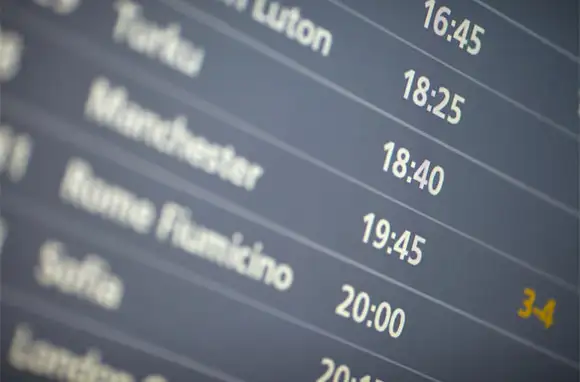
Your Timing Is Off
Avoid scheduling flights for the time of day that you tend to be most awake and alert. Early-morning flights are great for this reason, so long as you don't have your usual cup of coffee. Otherwise, book a ticket that departs right before bedtime. Either way, the key is to board the plane tired. If that means you need to wake up extra-early that morning, or get in a hardcore workout during the day, do it.
"On short, transatlantic flights eastbound to Europe where flight times might be as little as six hours, the key in any class of service is to get to sleep right away," says Kyle Steward, who owns a travel agency called Trip Sherpa. "You will have a chance at five to six hours of sleep, but getting a head start is key."
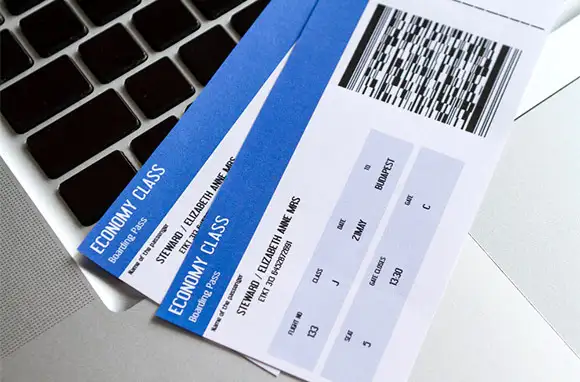
You Fly Coach
Yeah, we know, this isn't something most of us can control. But if you happen to have the money, miles, or charm to get up front, use it. For better chances of an impromptu upgrade, arrive at your gate early, dress sharply, and ask nicely. The worst they can say is no.
And if the flight staff ever asks for a volunteer to give up their economy-class seat to accommodate other passengers' needs, raise your hand—there's a decent chance they'll escort you into business or first.
So long as you don't indulge in the free champagne and chocolate, you'll have a much better chance at getting longer, higher quality sleep where you have more space around you, fewer people, and seats that basically turn into beds.
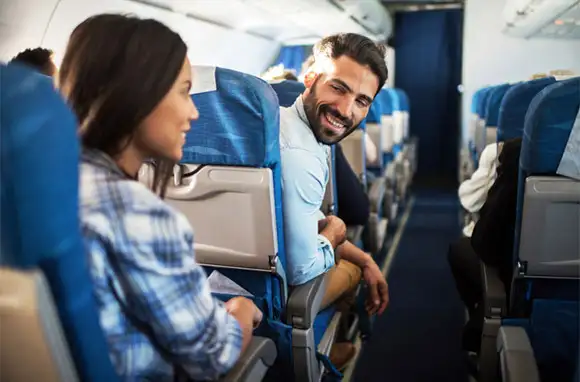
You Chat Up Your Neighbor
On an airplane, even a friendly greeting can be misconstrued as a signal that the conversational door is open. And then, if you're seated next to a chatty Cathy (or a talkative Tom), you're at risk for an hours-long back and forth when what you really need to be doing is sleeping.
When acknowledging your seatmate, keep it quick and polite, then quickly put on headphones or an eye mask. To solidify your chances of silence, say something like, "Hey, if the flight attendant comes by to take drink orders, would you mind telling her I don't want to be woken up?" This'll send the loud-and-clear message—without having to outright say so—that you're not up for a gabfest.
You Might Also Like:
We hand-pick everything we recommend and select items through testing and reviews. Some products are sent to us free of charge with no incentive to offer a favorable review. We offer our unbiased opinions and do not accept compensation to review products. All items are in stock and prices are accurate at the time of publication. If you buy something through our links, we may earn a commission.
Related
Top Fares From
Today's Top Travel Deals
Brought to you by ShermansTravel
France: 8-Night Paris, Avignon & Nice...
Infinity Worldwide Vacations
 vacation
$2880+
vacation
$2880+
Poconos: 3 Nts in Garden of...
ResortsAndLodges.com
 hotel
$305+
hotel
$305+
7-Nt Canada & New England Cruise,...
Princess Cruises
 cruise
$839+
cruise
$839+
